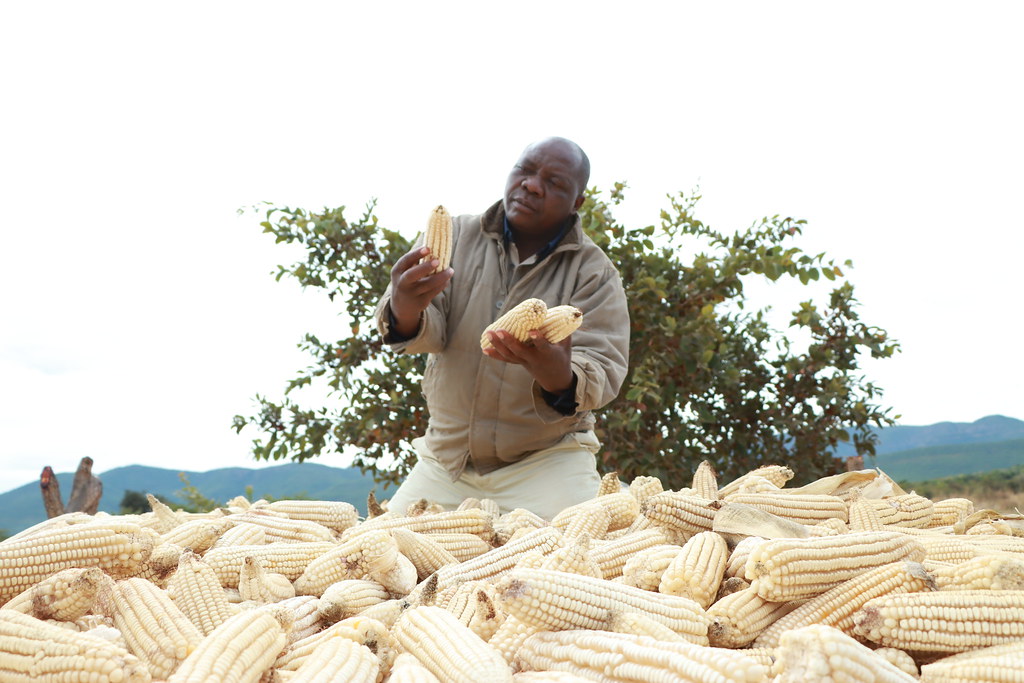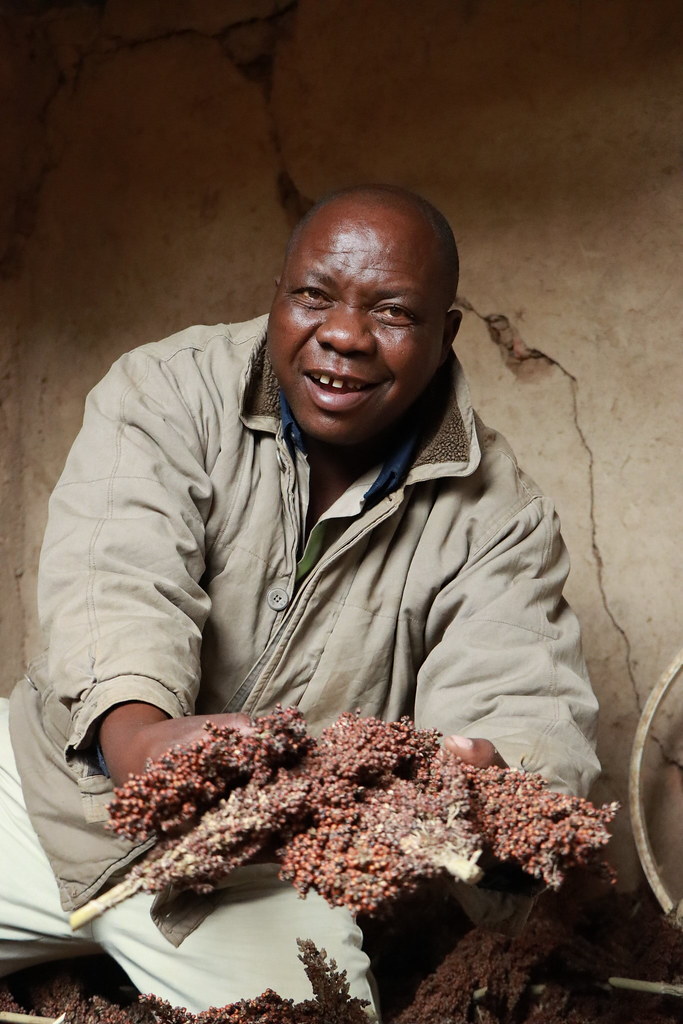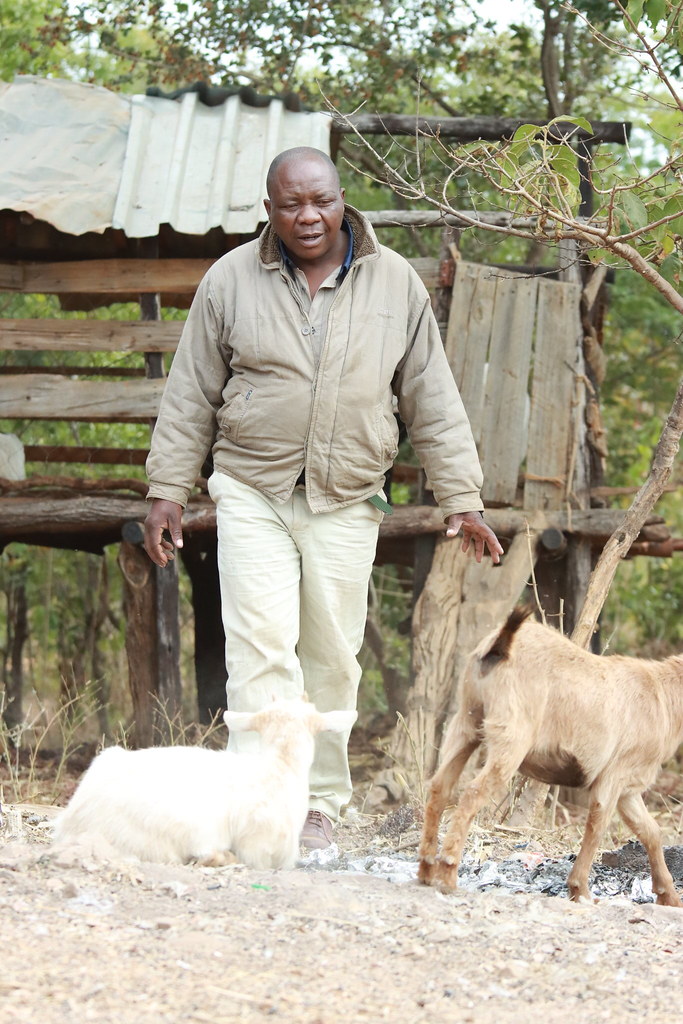How Nature+ restored land, culture and peace in Mandima Village
 Simon Nezandoyi, TSURO Ward 7 Representative from Mandima village, grows resilient crops through agroecology and the Nature+ project.
Simon Nezandoyi, TSURO Ward 7 Representative from Mandima village, grows resilient crops through agroecology and the Nature+ project.August 20, 2025
By Simon Nezandoyi
TSURO Trust is working to improve conditions for community members in Zimbabwe. A project funded by the Canadian Foodgrains Bank and the Government of Canada, and supported by Alongside Hope, is adopting gender-responsive, nature-based solutions to improve biodiversity and strengthen climate resilient livelihoods.
As the TSURO Trust Representative for Ward 7 in Mandima Village, I lead and participate in all TSURO Trust programs, including the Nature+ project. I have been practising agroecology for some time, but Nature+ has strengthened my practices. I have always wanted to protect the environment because I have witnessed the impacts of soil erosion, gully formation across the landscape, and the conflicts arising from these gullies. Fields have been destroyed by erosion and runoff, and when we first started experiencing these issues, we did not realize that our environment was dying.
Ngekuda kwe Nature+, ndinotaura ne gwinyiso kuti chirongwa ichi chakaunza shanduko munharaunda yedu nezvakatipoteredza. In English, that translates to: However, with Nature+, I can confidently say that it has brought significant changes to our landscape.
I joined the Nature+ program because of the severe degradation of the land and the erosion of cultural values in our area. When Nature+ arrived, we realized that its programs could help us restore our environment, rehabilitate our forests, revive our culture, and improve our way of life.

Gender Relations
Firstly, one of the most significant changes I am eager to share relates to gender relations. Our community used to be one of the areas with high rates of gender-based and domestic violence, but through Nature+, things have changed. Relationships between spouses, children, and other relatives were often filled with conflict and violence. Through continuous training, capacity building, and the formation of Peace Circles, gender-based violence has decreased, and communities are now able to identify sources of conflict and resolve them independently.
Conservation Agriculture
Secondly, regarding Conservation Agriculture (CA+) practices, the 2024/25 season has brought smiles to many faces, including mine. I have observed a significant improvement: all households that adopted the CA+ concept harvested enough this year, compared to previous years. Even small plots of land under CA yielded positive results for everyone.
Environmental Changes
Another change that brings me joy is the improvement in our environment. Through the Nature+ initiative, we constructed loose gabions in the uplands where gullies were forming. After building these gabions, we began witnessing water springs resurfacing below them during the rainy season, which has positively impacted our environment. Fields that were previously destroyed by gully runoff were protected this year and remained unaffected by erosion. Additionally, swales were constructed in these areas. People have returned to traditional farming methods that help protect our resources. Respect for traditional leaders and fellow community members has also increased, signalling a restoration of our culture.
Reflecting on my own relationships within the community, I see major changes. I used to rely on food aid due to poverty. But this year, I chose not to submit my name for assistance, as I harvested more than enough. I produced one ton of sorghum and three tons of traditional maize, and I plan to sell some to earn income. All these successes are the result of following CA+ practices.

Honouring tradition
Kana tichitaura nyaya dzezviwanikwa, nzira dzekurima nedzetsika nemagariro edu, zvakakosha kuti tikoshesewo tsika dzedu dzechinyakare dzemararamiro edu zvinobva kuvatungamiriri venharaunda. In English, that means when discussing the environment, farming methods, and culture, it is essential to honour our traditional ways of living, passed down by community leaders.
Previously, I acted independently and without coordination, but after the introduction of Nature+, we formed groups to share knowledge. This greatly contributed to the changes I mentioned earlier, particularly regarding gender dynamics – men and women now work together as families, free from conflict.
Working the land
Basin diggers have made CA+ easier, compared to using a hoe to dig holes across an entire field, which is physically demanding. Training manuals on various themes have facilitated knowledge sharing, including those focused on gender and conflict transformation. Through the Nature+ project, I have learned that working as a group is highly beneficial – it allows individuals to share knowledge, ideas, and skills. Group members also help remind one another of best practices.
Landscape regeneration through collective efforts is another highlight. Our natural way of life is improving, and everyone is now taking responsibility for protecting the environment and its resources. Agroecology, gully reclamation through the use of loose gabions, and soil and water conservation practices are now embraced by all in the landscape – this shows a collective commitment to environmental stewardship and the fulfillment of Nature+ goals.
Marketing has been an unexpected benefit of this program. We used to consume everything we produced without considering the business potential. However, we received training in marketing skills and were provided with machinery for oil pressing, especially useful since we grow sunflowers and groundnuts in our fields.
If Nature+ initiatives are scaled up across our community, we will restore our environment to its original state. Ongoing collaboration among stakeholders will continue to foster positive relationships.
For media requests, please email Communications and Marketing Coordinator Janice Biehn at jbiehn@alongsidehope.org.
